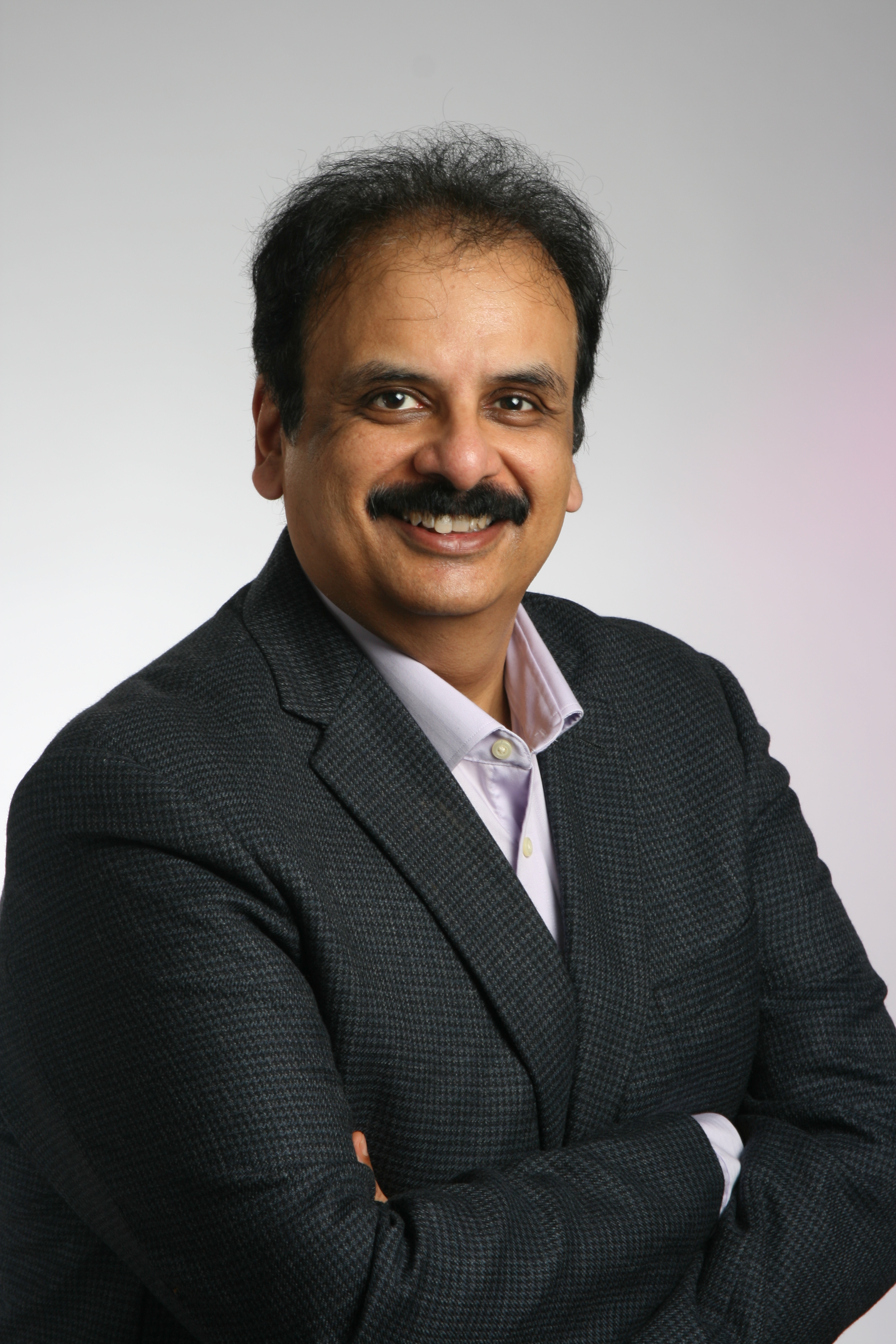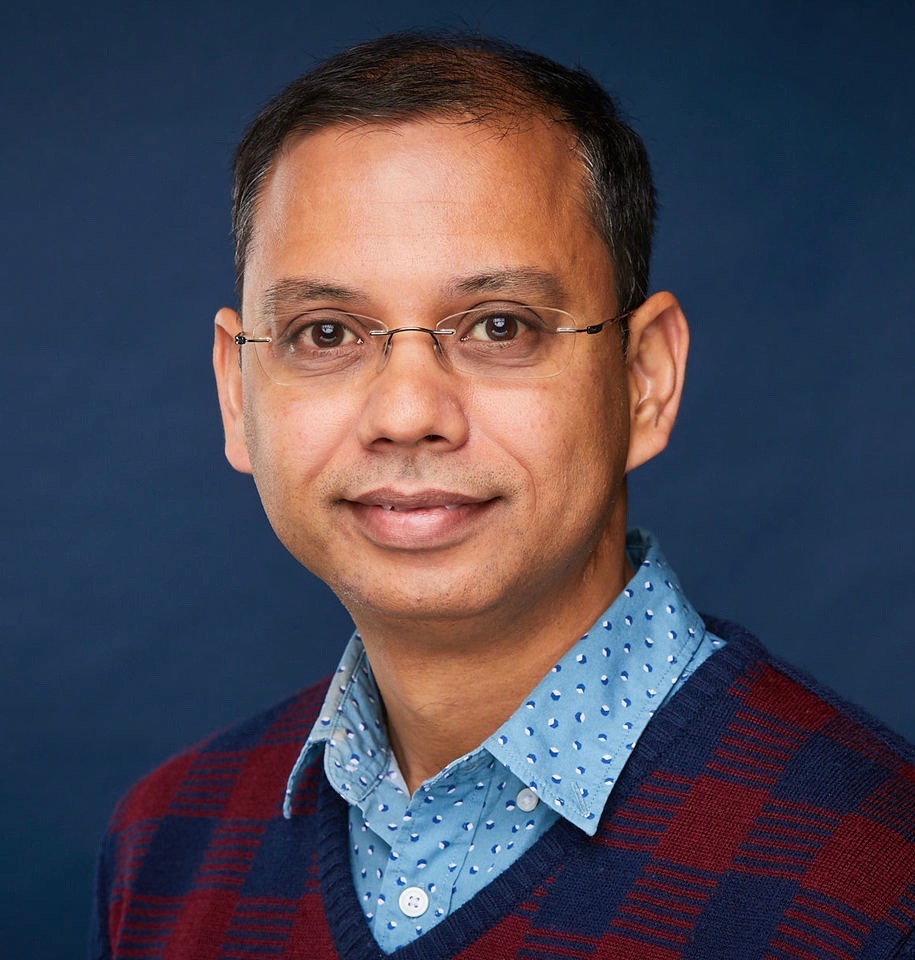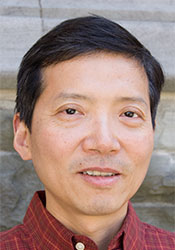Schedule: 8am-12pm on Aug.5th, 2019
Location: Summit 14, Ground Level, Egan Center (555 W 5th Avenue, Anchorage, AK 99501)
8:00 - 8:15am
Opening Remarks
Program Co-chairs: Jian Zhang, Microsoft and Jian Tang, Didi Chuxing
General Chair: Yiran Chen, Duke University
8:15 - 9:00am - Keynote
Fueling Industry 4.0 with the Intelligent Edge
Victor Bahl, Microsoft Research

There’s a momentous shift in the technology and business landscape that is dramatically altering how data is created, ingested, processed and acted upon. Industries, ranging from manufacturing to space-exploration, healthcare to transportation, retail to telecommunications are infusing information technologies into their day-to-day processes and tasks. They are developing real-time control systems that use sensors and actuators along with machine learning and artificial intelligence to create new functions, improve efficiency and reduce cost. At the center of this new world is edge computing.
I will explore this exciting new computing paradigm from the perceptive of a researcher who has been working on this since it’s inception over ten years ago. I will discuss the evolution of the intelligent edge, describe a few real-world applications, technologies and products that customers are paying for. I will share with you the progress we have made and more importantly the lessons we have learned as we developed an edge-based, (hybrid-cloud) live video analytics system called Rocket. Rocket is deployed in a US city and is used to reduce traffic-related fatalities and improve urban mobility. I will peek into the future and discuss who will be impacted and why. I will lay out some of technical and business challenges facing the large-scale adoption of edge-computing and the opportunities these challenges are creating.
9:00 - 9:25am - Invited Talk
On-Device AI for Augmented Reality (AR) Systems
Vikas Chandra, Facebook
Augmented reality (AR) is a set of technologies that will fundamentally change the way we interact with our environment. It represents a merging of the physical and the digital worlds into a rich, context aware and accessible user interface delivered through a socially acceptable form factor such as eyeglasses. Majority of the critical algorithms in AR systems are now powered by AI, which provides much better user experience but requires considerably more compute and memory resources. In this presentation, we will discuss the challenges and opportunities to enable AI-based algorithms in an energy-constrained AR system. Specifically, we emphasize the necessity to co-design and co-optimize the AI algorithms and the hardware platforms, where the algorithms will be executed. We will present our early work to demonstrate the benefits and potential of such a co-design approach and discuss open research areas that are promising for the research community to explore.

Vikas Chandra is Director of AI Research at Facebook where he leads the Ondevice AI research focusing on AR and VR products. Prior to Facebook, he was Director of Applied Machine Learning at Arm Inc. He received his Ph.D. and M.S. degrees in Electrical and Computer Engineering from Carnegie Mellon University. He held the positions of Visiting Scholar (2011 – 2014) and Visiting Faculty (2016 - 2017) in the EE department at Stanford University. He has authored 70+ research publications and is an inventor on 40+ US and international patents. Dr. Chandra received the ACM-SIGDA Technical Leadership Award in 2009 and was invited to the 2017 Frontiers of Engineering Symposium organized by the National Academy of Engineering. He is a senior member of IEEE.
9:25 - 9:50am - Invited Talk
AI for Alleviating Chronic Diseases
Charles Ling, Western University
Chronic Diseases such as type-2 Diabetes affect millions of people worldwide, and is linked to and often worsened by unhealthy lifestyle. In this talk, we will discuss a personalized recommendation system, called GlucoGuide, for Type-2 diabetes, based on mining users' lifestyle data. Our system conveniently collects a variety of lifestyle data on patients' mobile device, mines the data with novel data-analytic algorithms, and sends personalized advice that can effectively improve users' condition. A small clinical trial with diabetic patients obtained promising results. GlucoGuide strives to bring benefit to people with diabetes and other chronic diseases, and to cut down medical costs for organizations and insurance companies.

Charles Ling is a Professor of Computer Science, and Science Distinguished Research Professor at University of Western Ontario. He is also a Fellow of Canadian Academy of Engineering. His research focuses on (Big) Data Analytics, machine learning, and data mining applications. He has published over 160 peer-reviewed research papers. Recently, he applies his research to mobile health, and created GlucoGuide, a health platform which won the First Prize in Diabetes Research Day at the Schulich School of Medicine & Dentistry of Western.
9:50 - 10:20am
Break
10:20 - 11:05am - Selected Paper Presentation
Flash Lidar Object Detection and Tracking
Deep Samal, Evan T Gebhardt, Marilyn Wolf - Georgia Institute of Technology
DoPa: A Fast and Comprehensive CNN Defense Methodology against Physical Adversarial
Attacks
Zirui Xu, Fuxun Yu, Xiang Chen - George Mason University
Machine Learning and Internet of Things Enable Steam Flood Optimization for Improved
Oil Production
Mi Yan, Jonathan C. MacDonald, Chris T. Reaume, Wesley Cobb, Tamas Toth, Sarah S.
Karthigan - ExxonMobil
11:10am - 12:00pm
Panel: Challenges and Opportunity in AIoT
Panelists:
Chris Gurciullo, Intelligent Manufacturing Advisor, ExxonMobil
Jian Tang, Chief Scientist of Intelligent Control, DiDi AI Lab
Jie Liu, Dean of AI Research, Harbin Institute of Technology
John Sheehan, Distinguished Engineer, Microsoft Azure
Marilyn Claire Wolf, Professor of Georgia Tech & Director of Center of Edge Intelligence
Moderator:
Jian Zhang, Microsoft
